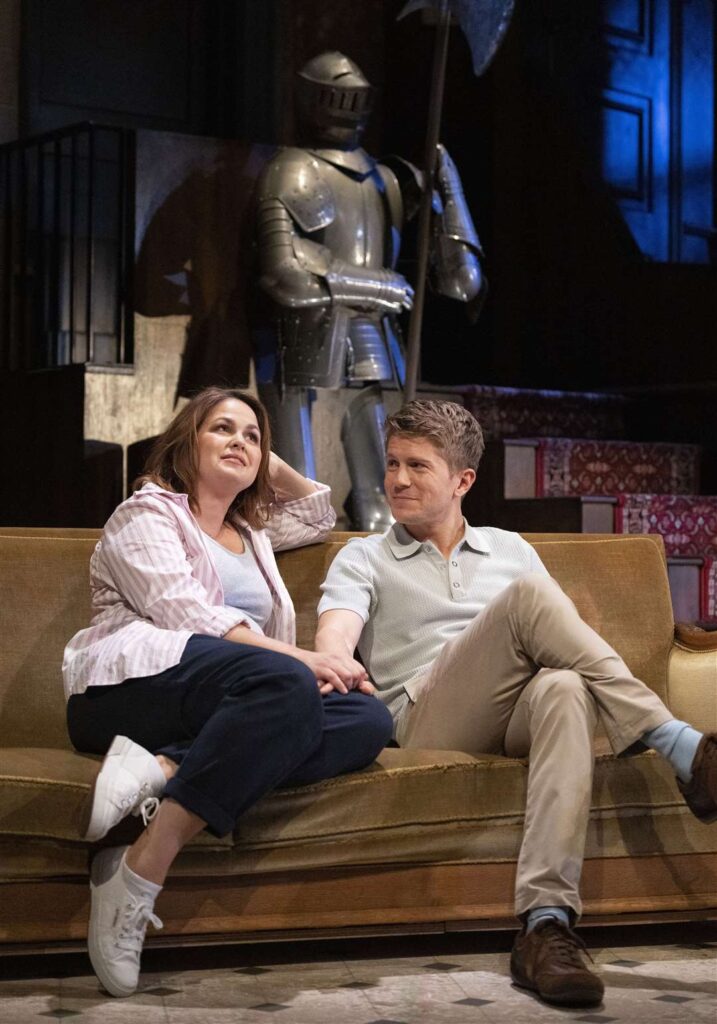Theatre Royal Brighton – until 25 March 2023
Reviewed by Sue Bradley
3***
Wish you Were Dead is taken from a recent Peter James novella of the same name and features the by now well-known detective DS Roy Grace and his wife Cleo. Unusually for a Roy Grace story, the setting is not Brighton. Apparently inspired by a real holiday experienced by the author, we are transported to Northern France, where we are treated to an almost Agatha Christie-like single location thriller.
On holiday with their new baby, and accompanied by their nanny, Roy and Cleo arrive at what the advertising promised to be a dream location but instead turns out to be anything but.
Arriving late, due to SatNav navigation problems, they find themselves in a grand but creepy old French chateau with an exceptionally, even comically, grumpy hostess Madame L’Eveque (played with panache by Rebecca McKinnis) who complains about their tardiness and generally makes them feel unwelcome. Add to this the apparent lack of modern facilities like mobile phone reception and wifi, and their isolation sets the scene for the difficulties that are to come.
Perhaps I have been spoiled by reading some of the novels and seeing dramatisations of Roy Grace stories on television, but I have an impression of how Roy Grace presents himself to the world – an urbane and thoughtful older man with a difficult internal world – partly down to the rigours of his job and partly due to the mysterious disappearance of his first wife that has darkened his life.
In this production, George Rainsford (Casualty), plays Grace as a younger, more highly strung character – less frustrated by his situation and more desperate; although, to be fair, the plot does eventually take us to a fairly desperate situation. Cleo, played by Giovanna Fletcher (interestingly, in real life herself is a best-selling novelist) also appears somehow less glamorous and complex than the Peter James novels would suggest.
Clive Mantle (Casualty, Vicar Of Dibley) is perhaps more convincing as the near-psychopathic Curtis, with some nice throwaway comic lines laced into his Hammer Horror villain – style menace (“You’re no fun, Miss Marple”).
In some ways, the staging is the star in this show. The single set has multiple doors and locations including one that is only revealed half-way through, even though it has been in plain sight all the time. It provides plenty to look at and an effective background to the different emotional moods throughout the play. Clever tricks with the lighting add to the atmosphere and I rather liked the use of music to add tension, much as we often hear used in films and television.
I can’t help but wonder if Peter James is having a private joke with us, naming the villains of the play after a notoriously pungent French cheese. And like many strong French cheeses, the flavour is not as strong as the aroma might suggest. In the end, this is an enjoyable, if undemanding romp.

